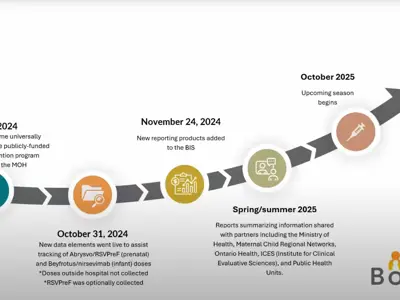What’s new at BORN: Catch up on the latest initiatives, partnerships, and progress improving care for families across the province.
News
Contact Us
BORN Ontario
401 Smyth Rd
Ottawa, ON K1H 8L1
General Inquiries
Send us an Email
Help Desk
BIS · CARTR Plus · MIS · NTQA
FAQ · Email Us
1-855-881-BORN (2676)















